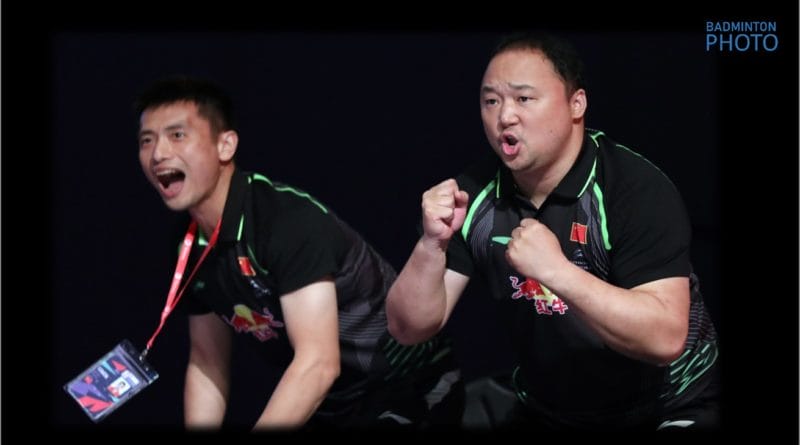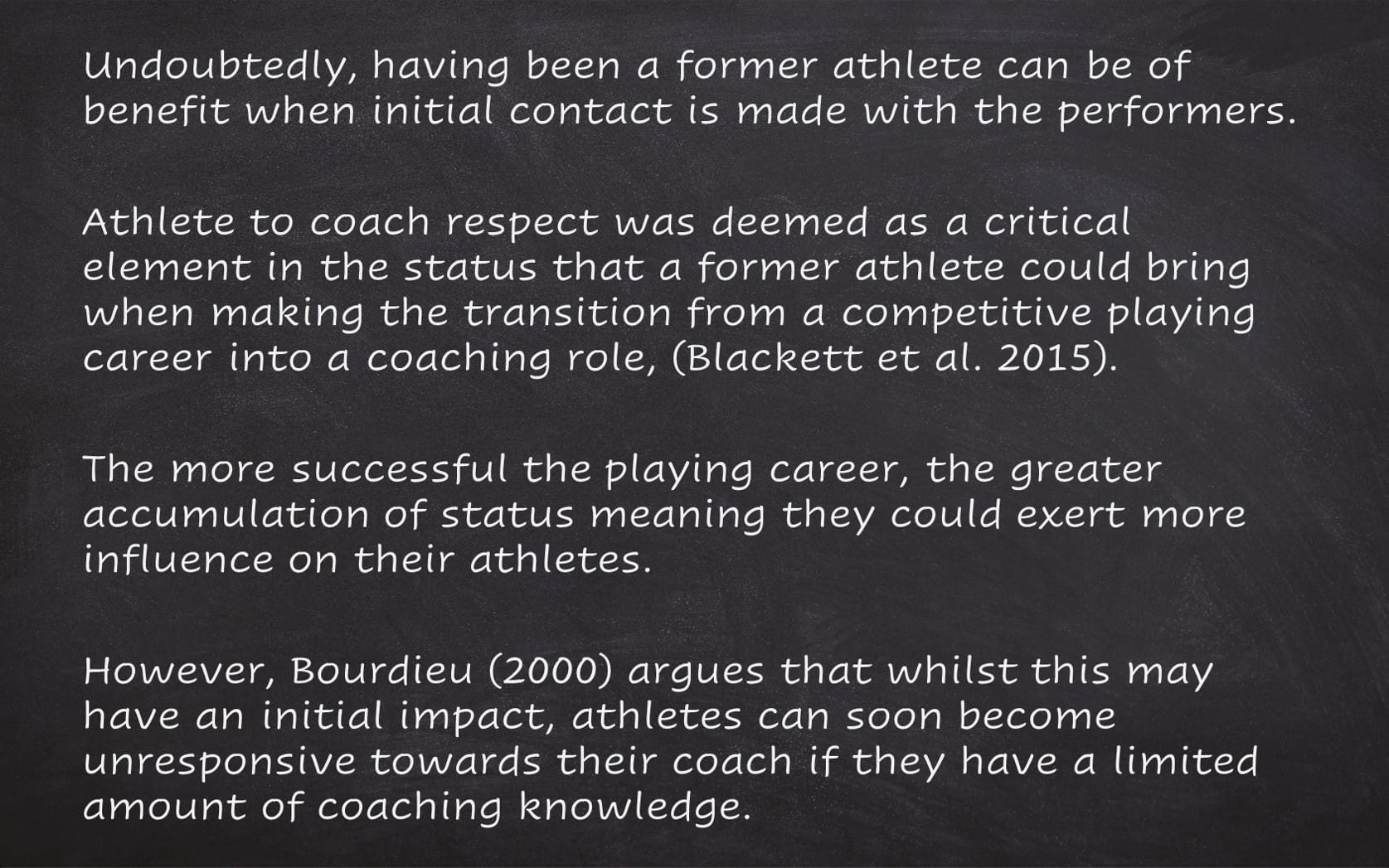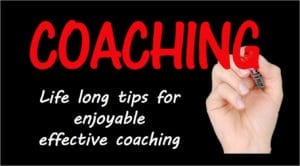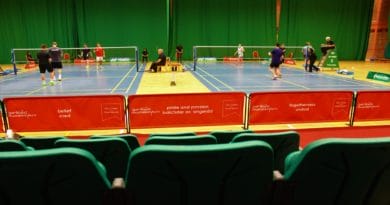The Player to Coach transition – challenges and pitfalls: part 1
What are the surprises and stresses awaiting a new coach?
Good playing skills will give you an advantage but how to use them?
I’ll outline some of the challenges, misunderstandings, or aspects that people just don’t see
Do you think that it can be tougher for good (great) players when they move from playing to coaching, I do
Some aspects may seem obvious, others not so, and others only appear after some time
I wonder how many you will have experienced?
Transitioning from a player to a coach can be tough. I hope that even if you are already a coach with years of experience you may recognise some of the points below.
It would be great to hear about how you coped with the stresses and what, if any, surprises happened to you. How well were you prepared for the role of a coach and all things coach related?
Are you now able to advise someone just starting out as a coach, especially if they have been a full-time player previously?
What would be your top tips, suggestions or possibly warnings?
I think that it’s important to share information and to ensure that people are aware of what a coach has to do and importantly think about. It can appear all very easy to move from playing into coaching – just stand on court, pass on your knowledge, feed shuttles and watch people improve 🙂
I believe that we need to do more to encourage and help players who want to coach.
Rather than just watch them repeat what they did as players, they should revive guidance on how to make the best of their current skill-set. or see other coaches doing. Help will come in many forms and my wish in this post is to stimulate thoughts by posing challenges that could occur.
These pitfalls can harm your first experiences of coaching or people’s experiences of you
(even lasting a few years until you realise it’s time to change)
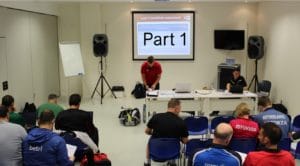 This post is part of a mini-series that aims to help good players transition into coaching
This post is part of a mini-series that aims to help good players transition into coaching
Click on this image to read Part 1
I’d really like to know what you think about the ideas and information. Did any of it apply to you?
Send me an email to contact@badmintonandy.com and we can start chatting
– – – – – – – – – – – – – – – – – – – – – – – – – – –
My aim isn’t to be negative
I have written and re-written part of this post several times. Each time it’s to ensure that it doesn’t sound too negative. Even now as I read the finished article, I’m not sure it sends the message I want it to.
I’ve struggled to write because the journey of becoming a coach is just that, a process that takes time and one that will be full of mistakes (learning opportunities). Much of this post may sound obvious and you could decide to just skip parts, even just stop reading.
You may also have an opinion that blogs such as this overcomplicate coaching. How can it be that difficult, especially if you have some good playing and feeding skills?
Can I suggest that playing and coaching, once mastered, are very different. As a coach, you must be prepared to consider:
- how you react to the challenges other people place upon you, maybe challenging you didn’t expect.
- how others may react to you, again it may not be as you like
- the learning (education, courses, etc) you’ll be asked to go through
- there are many different coaching methodologies to select from and that it takes time to assimilate this knowledge
- your playing skills will be an advantage to you, but how best to use them and to express your experience
Within each of the topics, I will try to offer advice on
- The challenges that you may face
- What you could try to do if the problem is already happening
- The warning signs to look for
Be careful that you don’t simply dismiss what comes next without considering how it can help you
My goal is to help you avoid the “traps” and “pitfalls” so you can take action before you stumble
– – – – – – – – – – – – – – – – – – – – – – – – – – –
Thanks to my friends
The advice given here is important as it’s based on real experiences. All the suggestions here have come from either my experiences of talking to whose who made the change from Player to Coach.
I’m thankful for all their advice and tips as many are about failures that happened to them. Often they managed to overcome each but sometimes it took years, a change of circumstances, or an explosive moment with players, coaches or an organisation.
The struggles and surprises that happened to them could happen to you!
How you hear this advice is up to you, I can’t control your thought process
But you may feel challenged and stop reading!
– – – – – – – – – – – – – – – – – –
The challenges and pitfalls
1. Expectations that are either misguided or misunderstood
2. Unconsciously biased towards your views (as a player)
Part 2
3. “When I was a player”
4. Dealing with challenges and challenging people
5. Taking silence as agreement
6. Your journey and the challenges of coach education
Part 3
7. CPD, is it worth your time?
8. People asking for your advice or wanting you as a mentor
9. Not valuing discussion and actively avoiding it!
10. Struggling to know what you stand for
Are you prepared to take 10 mins and read this post at least twice … it’s your choice!
Ho would you deal with these challenges?
– – – – – – – – – – – – – – – –
1) Expectations that are either misguided or misunderstood
Expecting everyone to have a performance goal in mind
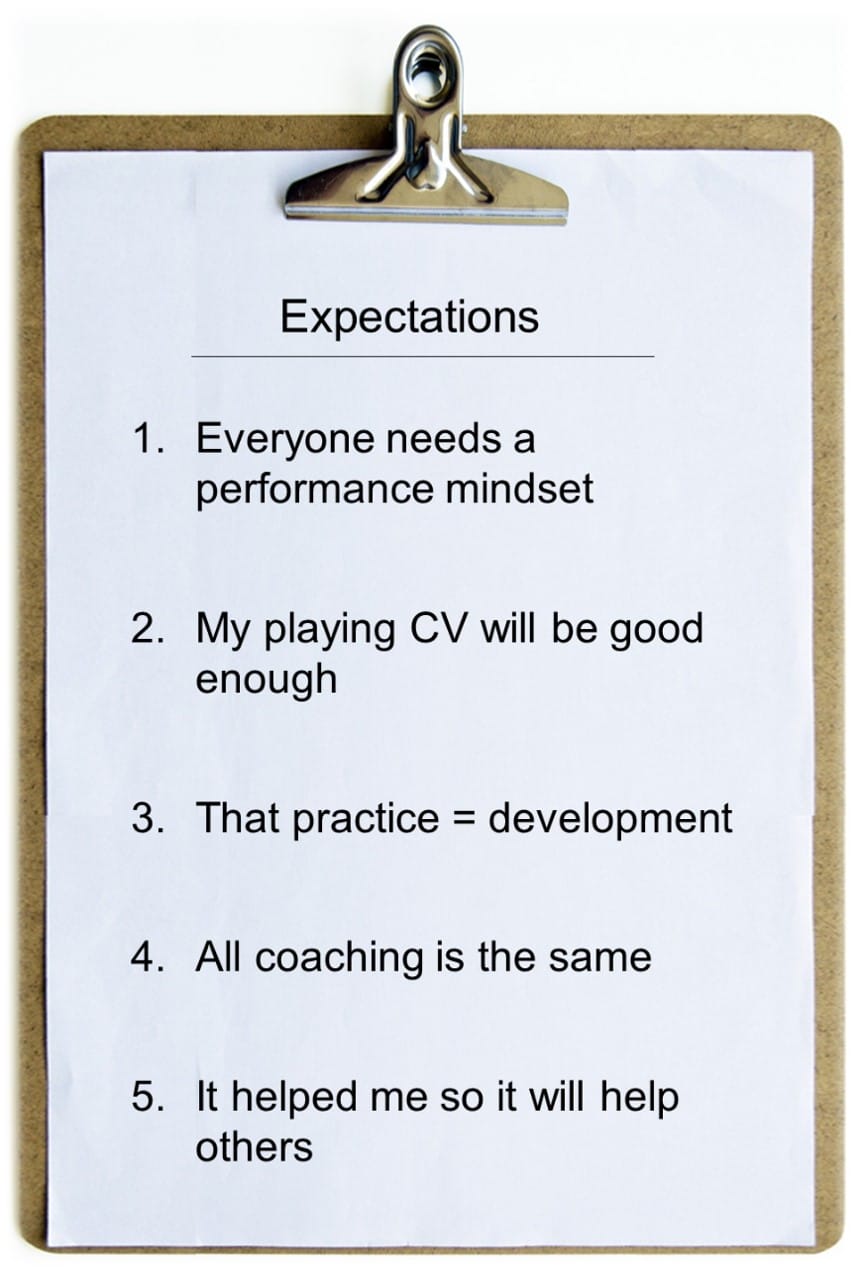 Not all the players and coaches you work with will have the same view of badminton and performance as you do. It may come as a surprise to you that others don’t value development/results/commitment as much as you. They may place enjoyment, the on and off court social aspects, above performance and development.
Not all the players and coaches you work with will have the same view of badminton and performance as you do. It may come as a surprise to you that others don’t value development/results/commitment as much as you. They may place enjoyment, the on and off court social aspects, above performance and development.
If you are working with a range of players be ready for this and either adapt or change who you work with. Do not belittle or dismiss their aims and goals if you believe them to be too low or inappropriate.
That your playing CV will give you an advantage
If you are applying for a coaching position, especially with Governing Bodies, you will be expected to have a coaching award.
Often it’s a minimum of a BWFL2, maybe soon to be a BWFL3. Be careful, other coaching qualifications may not be recognised, especially if they are local to your own country (UKCC). Even if you believe that you have the knowledge to share that you’ve gained as a player, others may see it differently. Most organisations, even if they value you as a player have insurance and governance levels to meet and will therefore only employ coaches with proven qualifications. If you want to coach in Europe you will need BWF qualifications.
I recommend that not only do you take at a qualification but that you also apply for assistant coach positions in recognised clubs. If you find this idea difficult to accept, then I’d suggest you ask head coaches you know for their views. How many of them walked straight into full-time roles without qualifications?
That practice = development
Lots of practice hours do not guarantee that your players will improve. Spending many hours on the court “practicing” is no guarantee for tournament success. Yes, players will improve, but the definition of improvement is variable and complex.
You will need to learn how to design and adapt your work with players to create effective development. Be aware that they may get better at the practice, but not improve in competition. Think back to some of the players you practiced with who arrived early, stayed late, and did extra sessions. Was that a guarantee that their efforts always translate into competition success?
You need to establish processes and systems that are flexible, long-term, and specific to each player’s needs. Often it’s easier said than done!
Just ‘putting work in’ does not guarantee competitive development
Devise a message to give to your players. A message that contains realistic advice aimed at producing effective development and guidelines for players. Plus don’t forget you need to structure the practice sessions and environments so that it’s more than just hitting shuttles to keep them busy.
All coaching is the same
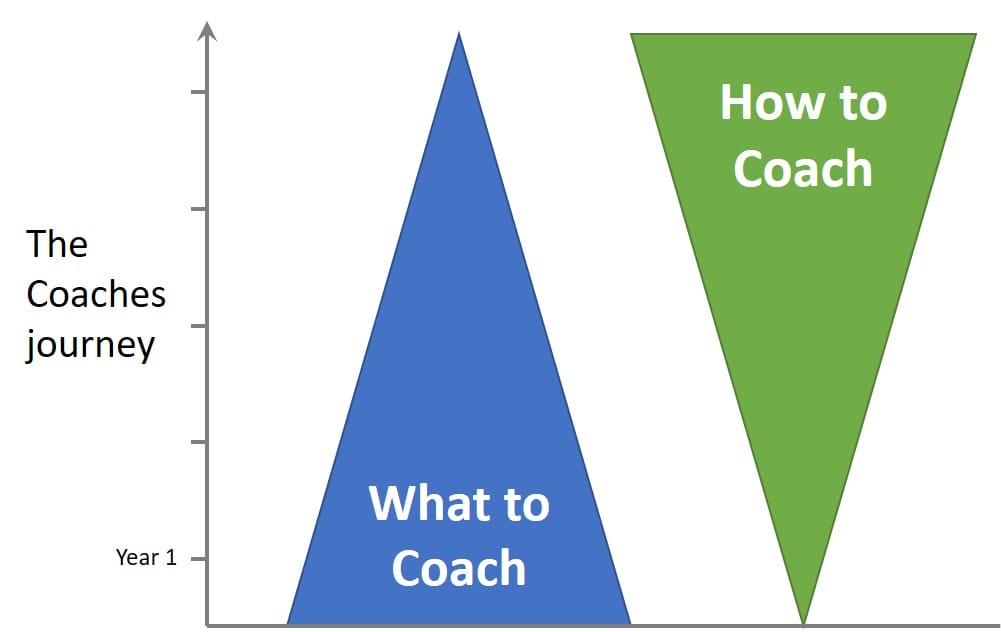 If you coach everyone the same way and worse still, you coach everyone like you were coached, trouble lies ahead!
If you coach everyone the same way and worse still, you coach everyone like you were coached, trouble lies ahead!
Similarly, coaching everyone with the same practices and the same feeding will also eventually cause problems. You must pay attention to your players current level, motivation, needs, wants, and requirements.
Be aware that it’s very easy to do the same routines, drills, and multi-session’s with everyone. Even if you slow them down or have fewer shuttles it will still not be the most effective way for development.
Unfortunately, it’s an easy habit to fall into when you start out. You will have a limited understanding of different methods, especially if you have no formal coach education. Therefore repeating the same with all players will be very tempting, but it’s not coaching.
You will need to adapt and find many ways of coaching the same skill, I recommend that you read this post and see if you agree with my thoughts. 6 Ways to coach the same thing.
Then you will need to identify those aspects that are unique to different stages of development and playing style, the physical differences as players grow, mental changes etc. Then there are those important skills that say an U13 MS player needs that they will not use when they are U19.
Think about how many years it took you to become a good player and master the sport. Even if it takes you half that time to become a great coach, I’m guessing that will be 6-7 years worth of learning!
Repeating the things that you thought worked for you will help others
Another tempting habit and one that may seem obvious to you. When you were a player, you practiced hard, improvements happened, therefore the same will happen to those on the other side of the net when you coach. You may feel that there are no secret techniques, you believe that it’s all about ‘the work’ and dedication.
Repetition of practices without thoughts such as player specificity, player motivations, and developmental context, will only get you so far. Yes, you will earn a fee, maybe see development in your players, but long-lasting effective development or achieving that particular player’s needs, well that may not be certain.
It’s very tempting to try and remember what worked for you (when you ever 12 yrs only). However here are 3 considerations for you:
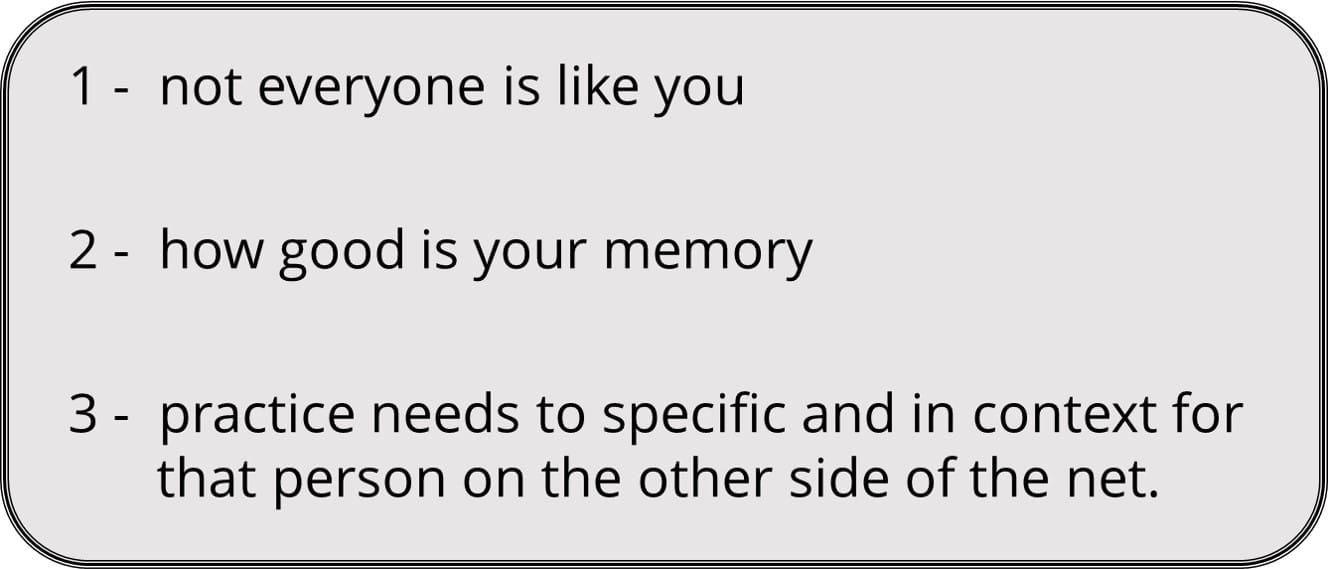
I hope that these will get you thinking, the most powerful one is no. 3.
Do you agree that the way to help someone is to find a need that is specific to them and delivered to them in a way/method that is predictive? Of course, if it does not appear to be having the effect you need you’ll need to change and adapt. Or, you could just keep repeating the same thing!
– – – – – – – – – – – – – – – –
2) Unconsciously biased towards your views (as a player)
This could be described as using your likes and dislikes (without knowing) from when you were a player and applying them to your coaching of others.
Referencing the things you did as a player isn’t a problem, in fact, it’s essential as your experiences can help you. However, referencing how you felt as a player, how you reacted, your emotional response is not always helpful.
Sentences that should alert you !
Here’s a list of statements that you may either be thinking or say out loud during meetings and conversations. Do you recognise any?
“I would not have enjoyed that as a player”
“We did that years ago in our sessions, it didn’t help me”
“That just wouldn’t be enjoyable (to me)”
“I preferred straight-talking when I was given feedback, it never upset me”
“I’ve done that before and I know how I felt!”
The danger
Most of the decisions we believe we’re making, especially the ‘instant’ ones are controlled by mental shortcuts known as cognitive biases. It is important to be aware of this so that it doesn’t limit or negatively impact on your practice planning
If you reference your emotional reactions or viewpoints that you had as a player when planning practice sessions, be careful.
- Who are you designing this session for? – certainly not you as a player!
- You must realise that not everyone has the same emotional reaction and thinks as you do, or how you did when you were a player
- If you find yourself deciding if the practice is worthwhile based on your emotional reaction to it, stop, take a moment and be objective.
- Do you really believe that everyone has the same definition of enjoyment as you do and will react the same opinion as you did all those years ago?
Your role as a coach is to the player(s) in front of you and to design based on how they may react.
Are you sure that everyone else reacts emotionally and evaluates things as you do?
The solution
- Be aware of judging how you believe others will react, you could be making instantaneous emotional decisions (based on your emotions). Are you being objective?
- Remember – not everyone is like you. It is not acceptable to design practices based solely on your emotional reaction to it? ie you ask yourself: ” would I enjoy that, would it work for me”.
- Identify the practice outcome that you are trying to achieve. Then plan at least 3 different ways of achieving it. Use your coaching skills to help the player and deliver what they need, what you would like to do.
- Reflect (check) on how you are making decisions. Consult with others, the coaches you work with or the players themselves. What do they think?
Be aware that your instant, immediate decision making may be influenced by your past emotions (like/dislikes) as a player
– – – – – – – – – – – – – – – –
– – – – – – – – – – – – – – – –
In parts 2 and 3 we will take a look at
.. Your journey and challenges of coach education
.. CPD, it’s worth and how you can use it to progress
.. how people asking for your advice or wanting you as a mentor can be a problem
.. the fact you may not value discussion with other coaches and actively avoid it!
.. at the start of your coaching journey, you may struggle to know what you stand for
If you have any questions please send me an email and I’ll do my best to help contact@badmintonandy.com
I appreciate all your comments and suggestions, why not send me an email
– – – – – – – – – – – – – – – –
Further reading
Do you have any advice that you could give that has helped you so far?
I wonder how many of these would be on your list and if you will agree with them all.
There are links to further reading and ideas dotted throughout, click on them and have fun ????

